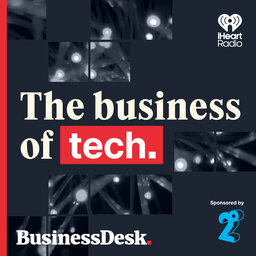Can tech save Welly?
Wellington, once a vibrant hub for New Zealand’s tech innovation, has faced stagnation in recent years.
Last week, a packed audience at a Vision for Wellington event on Wellington’s waterfront heard from the city’s tech luminaries about how the city can embrace its strengths, particularly in technology, and foster a more supportive, connected ecosystem.
Sitting in the audience was Ralph Highnam, founder of breast screening software maker Volpara Health, which was started in Wellington in 2009 and, after listing on the ASX, was bought in 2024 by South Korean AI medical imaging company Lunit in a deal valued at around $300 million.
On this week's episode of The Business of Tech, Ralph outlines his own vision for Wellingtion and his plans for WellyForge, a new organisation started with the aim of breathing new life into the city's tech ecosystem.
 The Business of Tech
The Business of Tech


